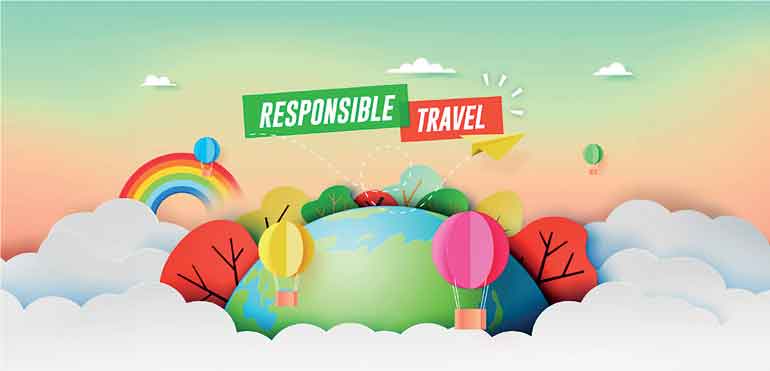Saturday Feb 21, 2026
Saturday Feb 21, 2026
Friday, 26 September 2025 14:03 - - {{hitsCtrl.values.hits}}

Every year on September 27, the world pauses to reflect on one of its most powerful industries—tourism. The observance of World Tourism Day, initiated by the United Nations World Tourism Organization (UNWTO) in 1980, is not only about recognizing tourism’s economic contribution but also its ability to foster cultural exchange, environmental consciousness, and global unity. In 2025, under the theme “Tourism and Sustainable Transformation,” this day takes on added importance as the world seeks to reimagine tourism as a force for positive change.
Travel is more than a break from routine—it is a deeply enriching journey that broadens horizons and strengthens connections. Whether it’s standing before an iconic landmark or conversing with local villagers in Sri Lanka, travel can transform both the traveler and the destination. By immersing oneself in new cultures, traditions, and forms of life, travel builds empathy and mutual understanding. In a world often marked by division, tourism quietly bridges gaps, helping people appreciate diversity and dispel prejudice by making the unfamiliar familiar.
Beyond its cultural value, tourism remains a vital economic engine. Before the pandemic, it contributed close to 10% of global GDP and supported millions of livelihoods. From small family-run guesthouses to international hotel chains, tourism fuels economies worldwide. Yet the COVID-19 crisis highlighted the fragility of the sector: in 2020, global tourism suffered a 74% decline in international arrivals, devastating destinations dependent on travel.
The theme “Tourism and Sustainable Transformation” demands that recovery be more than a return to old norms—it demands a rethinking. Tourism must evolve to be resilient, socially inclusive, ecologically restorative, and economically sustainable.
Key Transformations in Focus
1. From mass tourism to regenerative, mindful travel
The shift is underway: away from over-tourism toward slow, immersive, regenerative tourism. Travelers are spending more time in fewer places, seeking deeper engagement with local communities, and contributing meaningfully to the places they visit. This method helps preserve natural ecosystems and cultural heritage, while providing more balanced economic benefits.
2.Eco-tourism and regeneration over mere conservation
While eco-tourism emphasizes minimal harm, regenerative tourism advances the idea of leaving places better than one found them. This can involve tree planting, habitat restoration, beach and forest cleanups, or investing in local conservation projects. These actions align tourism with the goals of global ecological resilience.
3.Governance, planning, and strategic alignment
Transformation requires more than individual acts; it demands careful policy, transparency, monitoring, and integrated governance. Tourism development must align with long-term sustainability goals, climate strategies, and social equity frameworks.
4. Inclusive and accessible tourism
A truly sustainable transformation leaves no one behind. Accessibility for persons with disabilities, affordable travel options, barrier-free infrastructure, and support for underserved communities are central to ensuring tourism’s benefits are shared widely.
5.Empowering local communities and economies
In the transformed tourism model, local communities and small enterprises must become primary beneficiaries. Encouraging visitor spending to stay within local supply chains—through homestays, local guides, locally made products—strengthens resilience and cultural heritage.
A Call to Collective Action
As we mark World Tourism Day 2025, the call is clear: let us make tourism a catalyst for sustainability, resilience, and shared prosperity. Travelers have a vital role: by choosing mindful, ethical travel experiences, we each become part of the transformation.
Let us celebrate not only the places we visit but also the people, ecosystems, and cultures that make them remarkable. On this day, we reaffirm our commitment to a future where tourism heals, empowers, and revitalizes.